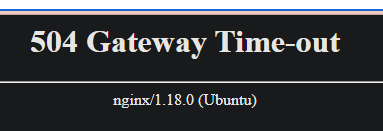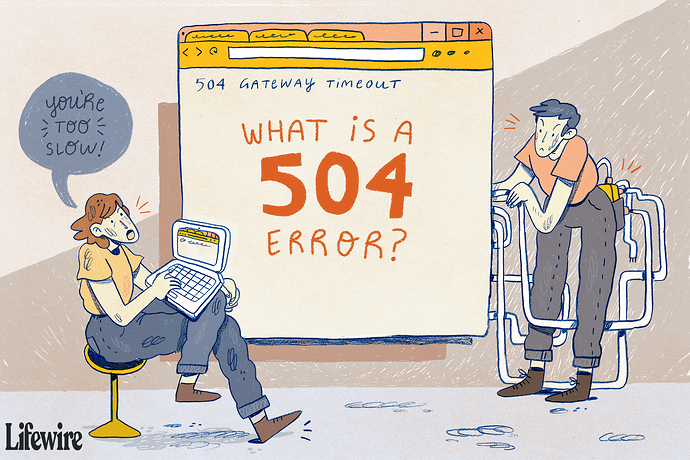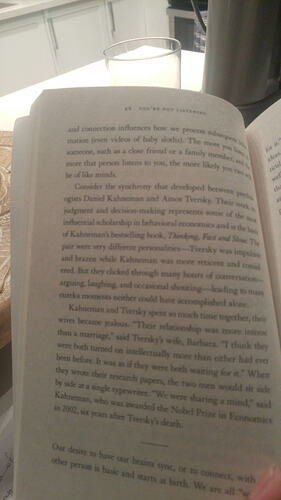Quick notes for myself so I don’t forget and can expand on the topics later (also this helps me sleep better at night to just get all these ideas off my mind because otherwise they tend to keep coming up in my mind until I post them, do something about them, or slowly forget about them over the course of months/years, but that process seems painful and unnecessary compared to trying this one):
Just took a shower. When I shower, I tend to think of new ideas, so I’m starting to intrinsically enjoy and like showering. It does not feel like a waste of time. It is also feeling more pleasurable in terms of warm water, enjoying the sensations of the present moment, and engaging actively with the positive idea that I am cleaning my body and thus improving myself in some way.
One idea that came up: At this stage in my life/learning/mindset/current problem situation, I should view quitting things as a last last resort and be very careful about the decision and consider all the consequences, discuss the pros and cons with CF etc.
Why? Because I think quitting things is one way that I sabotage my progress and learning. Not just the CF community, but also quitting my job or quitting League. It’s possible I quit things right when learning becomes hard or there is some barrier that I do not want to problem solve past. So then I end up starting over. It’s like that Joshua Parker (he was the university student who wrote that part of the script) idea from the Shia LaBeouf skit of “JUST DO IT” where the script goes like:
Do it
Just do it
Don’t let your dreams be dreams
Yesterday you said tomorrow
So just do it
Make your dreams come true
Just do it
Some people dream of success
While you’re gonna wake up and work hard at it
Nothing is impossible
You should get to the point
Where anyone else would quit
And you’re not going to stop there
No, what are you waiting for?
Do it
Just do it
Yes you can
Just do it
If you’re tired of starting over
Stop giving up
Those last two lines have particularly stuck with me. I am often starting over because I keep giving up. Sometimes that ends up being good because I start over in a better direction, or with better ideas or values, but often it just means I stopped when it got tough enough that if I stuck with it and found creative, persistent ways to keep making progress, I could have had breakthroughs and learnt a lot of cool things and been much happier.
However, the past is in the past. So moving forward, I need to detail my priorities to CF, try to explain why they are important to me, and be open to changing them rationally through discussion over time as I learn why they might be flawed and how they could be made better for my own goals and fulfillment.
Another thought from the shower: If I am unconsciously building contempt and/or disdain for “most people” or something like that, then it’ll become a self-fulfilling prophecy. If I go around the world looking for people who want to treat me like an outcast, I will find them. And if my defence mechanism to that is to look down my nose at them, I’ll become a bitter and resentful person, and I’ll also miss out on a lot of creative opportunities to collaborate with people just because I misunderstood them and went in with a preconceived notion that they were a bad fit for me or inferior or something.
I don’t want to become like that (and heck I might already be a lot more like that than I realize, so curi pointing that out from my writing could save me from going down that path). I’ll try to brainstorm what I want to be like, because I think if I know the personality traits and habits I want to cultivate, I can find a way to become more like that over time. I think curiosity and honesty are the core values I want to invest in rn. Courage and some others also seem interesting but I will explore them later. I think honesty requires developing courage anyway.
I want to respect people on a global level. This just means that I see everyone has having unbounded potential as human beings. I want to know what I want clearly and know what my values are clearly so I can express them to others. I want to then let others decide for themselves whether those values are a good fit for theirs, and whether my goals are a fit for theirs. I want to do the same myself, and then together we can figure out if we’re a good mutual fit. There was a page from the book I’m reading rn, You're Not Listening: What You're Missing and Why It Matters by Kate Murphy | Goodreads, I’ll post the picture I took and transcribe the bit I remember finding beautiful and inspirational when I read it yesterday evening.
“The pair were very different personalities–Tversky was impulsive and brazen, while Kahneman was more reticent and considered. But they clicked through many hours of conversation–arguing, laughing, and occasional shouting–leading to many eureka moments neither could have accomplished alone.”
"Kahneman and Tversky spent so much time together, their wives became jealous. “Their
relationship was more intense than a marriage,” said Tversky’s wife, Barbara. “I think they were both turned on intellectually more than either had ever been before. It was as if they were waiting for it.” When they wrote their research papers, the two men would sit side by side at a single typewriter. “We were sharing a mind,” said Kahneman, who was awarded the Nobel Prize in Economics in 2002, six years after Tversky’s death.
Reading this made me wonder if this is the kind of standard I should try to look for in the long-term relationships I build with people. I didn’t even know this level of depth in a relationship between intellectual partners was possible, although I think I got some glimpses into it from all the CF/FI/FIFL/curi blog post reading I’ve done. It wasn’t super surprising but I think reading it like this made it feel like it was possible for me to aim for and not an unrealistic goal.
BTW it seems problematic to me that their wives became jealous but it also makes sense. I have a question: Is it worth looking for a long-term romantic relationship, like marriage, that is also that degree of intellectual depth/connection? Or is that unrealistic and it’s better to just look for 1 romantic relationship + 1 intellectual relationship?
I think the post about philosophy first relationships kinda covers that, I will check it out again.
Oh good to know. Every time this feature pops up I’m really glad it exists. Is it a normal feature of Discourse or did someone custom add it? Either way, I am grateful for it
I plan to quote different quotes from it than I quoted back on Feb 12th.
the philosophy first approach recognizes that philosophy (aka reasoning) skill and compatibility are rare (and hard to create) and places appropriate value on that. if you aren’t a total conformist and you can find a few people you really like and get along with, you’re doing pretty well in the world today. then it makes sense to solve problems that come up so you can keep interacting . problems don’t mean you’re bad people or have a bad relationship. problems are part of life. and problem solving should be part of life too. don’t give up easily. don’t go “omg this seems hard” and go look for some other person who hopefully is magically easier to deal with. don’t think if you find someone new there will never be any hard problems.
if you get to know a few especially great people more thoroughly, then you can also get a perspective on their whole life. instead of just seeing little bits and pieces of a bunch of people, you can actually learn what someone else’s life is like. that’s interesting. maybe you can learn something about how to fit together a bunch of different stuff into an overall life. how can all your different stuff integrate together into a coherent whole?
and the more you do with one person with intellectual compatibility, then the more you can deal with connections between different topics. your interests shouldn’t all be these separate, individual things. it’s really common, when doing anything very interesting, that an idea in one field ends up being relevant to some other field.
This part seems relevant. Amos and Tversky got to know each other over a very long period and would have seen a bunch of stuff like this. I’m wondering who the closest person in my life to this is.
Other than my mom and dad in terms of having lots of conversations with them when I was younger, but drifting apart as I got older, it might be my cofounder, Josh, who I met in 2018. Since then we’ve had hundreds or 1000+ hours of conversation (but not a lot written, mostly verbal, although we started recording a lot of them recently, and YouTube can add automatic transcription, so that gives us something to Ctrl+F through to search through previously brought up ideas, analogies etc. and look at patterns). He’s probably the closest person I’ve talked the most with and listened the most to and in one of our most recent long conversation we both did note that we were on different pages the first ~2h and there was a lot of trying to get on the same page, but for the last ~1h of the convo we were starting to complete each other’s sentences, read each other’s minds, and it’s the first time in ~4.5 years that that has happened in that way. I didn’t think that much of it till I read this part of the book and started writing this post and made the connection. But maybe we’re crossing some sort of threshold and we’ve interacted with each other enough over a long enough period of our lives that we can not only predict each other better, but also offer some unique perspective to each other on the problems we each want to individually solve. I guess one thing I like about our relationship is it is both professional and personal. We both seem to genuinely want to help each other as people and with personal/individual problems, if we ask for help. Although I think he helps me a lot more than I help him, sort of. It’s different kinds of help both ways, maybe because we both solve problems differently.
Another note:
One thing I’m starting to notice I’m really bad at is handling distractions and prioritizing things. Like if I go to FI with a plan to do something, I end up spending way too much time on it. For example right now, I just wanted this post to be some quick notes, but it became a bunch of writing + thinking. I wanted to write some quick notes to remember stuff and then go record me reading Intuition articles, and then maybe even record myself doing my project management course because that might actually motivate me to do it (been putting it off for 2 days now). I also think I’m tempted to rush through the course, but that means I won’t learn that well, but if I record myself going through it and talk out loud about what I’m learning, I think I will learn better.
This happened in League too. I’d go into the game with a specific plan, e.g. “Have a plan for every wave”, “Punish/Pressure on every last hit possible”, and in the midgame, “Funnel as much gold onto myself as I can as efficiently as I can, and try to be at teamfights whenever I’m near them or they break out near where I am funneling gold” – I think this is also a way that I sabotage my learning. I let myself get distracted by fun/interesting things and start digging into them but lose sight of my original goal, OR I let myself get distracted by things because I view them as emotional/urgent. I tend to feel like if I don’t write a response right away, I never will, and I think I struggle to schedule stuff and trust myself to follow the schedule. That’ll take some step by step building and small successes, so try to just schedule a single day or a single hour or something and stick to it consistently. Then I can try scheduling stuff further out, like 2 weeks out, and then when the time comes just get used to checking my calendar, seeing reminders, not viewing reminders as some scary/anxiety inducing thing and just pushing the reminder forward if I don’t want to do it right then, but eventually actually getting it done and making it so that I have to keep facing the thing I’d otherwise avoid facing.
So at least two ways I think I sabotage my learning:
- quitting when things get hard rather than maybe finding smaller, easier ways to progress, or identifying why it got hard and breaking it down into more achievable, easier steps.
- Changing my priorities unconsciously rather than consciously. Changing them based on short-term distractions or emotions rather than going back to my priority list and consciously asking, “Where do I want to place this new item that has come up now? Does it go right to the top, or somewhere in the middle?”
I’m also really bad at actually following my checklists. If I make them too big, I ignore them, and if they are too small, I do some of them but not all of them, or I find a way to lose the checklist and forget about it, which seems like a really complicated way to avoid stuff but it happens way too often to just be coincidence. I think that might be self-sabotage too. Like making a Trello and then never looking at it again, or making a paper sticky note, and then not putting it back on the monitor when it falls off etc, or keeping it on the monitor but then just learning to ignore it rather than force myself to read it everytime my eyes pass over it, and then to actually think about it rather than just read and forget. Wow I’m realizing there are so many layers to ACTUALLY paying attention to something and I can sabotage myself at every layer if I’m not conscious of where I’m putting my focus and how I’m using my mind.
So that’s 3 ways.
There must be hundreds if I keep looking for them. I’ll keep an eye out.
Another note:
Part of the issue I felt was that the more I learnt CF, the more isolated I felt from my work colleagues (~4 years ago). I also never felt like I could properly belong in CF, so I was stuck between two places and kinda moving further away from feeling like I could bring this stuff up with my work colleagues or my friends and family.
But looking back, a lot of those were my own fears, and they were unfounded. When I did muster the courage to bring them up to work colleagues, it never went as badly as I expected. For example, I even remember whispering to my colleague, “What if I become a conservative?” and yet today that seems like such a silly fear to me… A lot of the ideas and explanations here now make sense, and I’m not worried what political side they are on. I don’t follow politics as much as I used to, maybe because if I did I would be more worried about that? Not sure. I think my need to belong or feel safe belonging to some side or tribe or team is less pressuring on me now, and I am more comfortable admitting sometimes that I don’t belong or that I have friction with a group and that’s OK as long as I can work on it and make progress.
Reminder for myself to use the stories thread to share a story where I shared the ET Lying essay with a colleague and what his reaction was and how I felt about it etc. (Short summary is just that he dismissed it saying that philosophers will write all sorts of stuff, and I was trying to say that I think it’s really true, and applicable. I think he was trying to console me because he could tell that I was trying to uphold the standard in the essay and failing and that I was being unproductively hard on myself/emotional about that failure)
Also reminder for myself to share the story a friend told me about Will, who would want his story to be shared. That story helped me emotionally connect with the idea that a minimum wage actually hurts the people it is most intended to help. I read the Andy D discussion with curi and the points curi made sense to me, but I’m guessing I didn’t fully or deeply understand them, because I must not have been fully convinced. I must have had some kind of unconscious disagreements or maybe a fear of holding an opinion that I thought might get me in trouble/hot water if I ever brought it up with people IRL if the topic came up (like if someone were to mention that we should have a higher minimum wage because the cost of living in Vancouver is too high, and that people are working 2-3 jobs to pay rent and survive etc.)
















